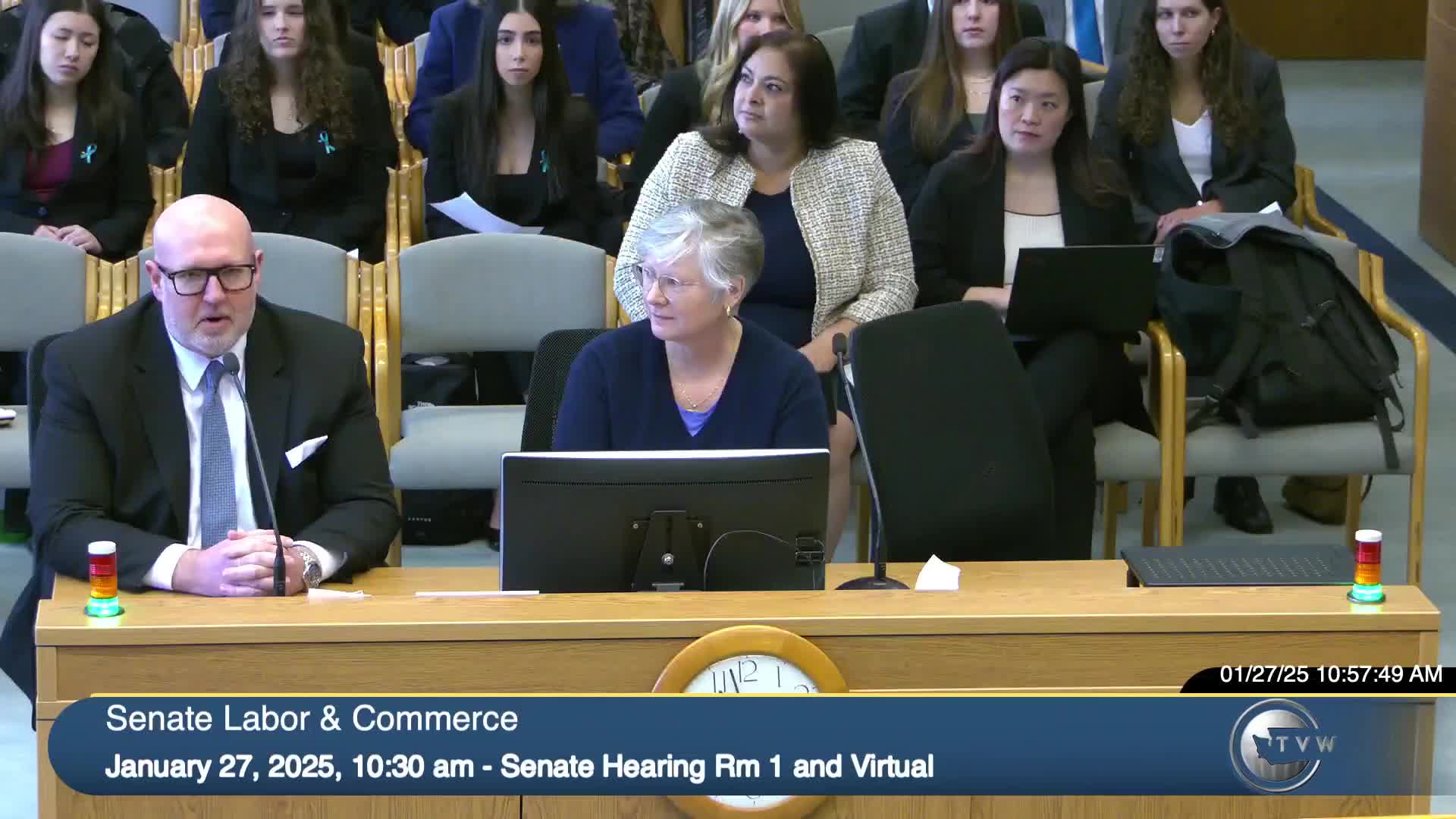Article not found
This article is no longer available. But don't worry—we've gathered other articles that discuss the same topic.
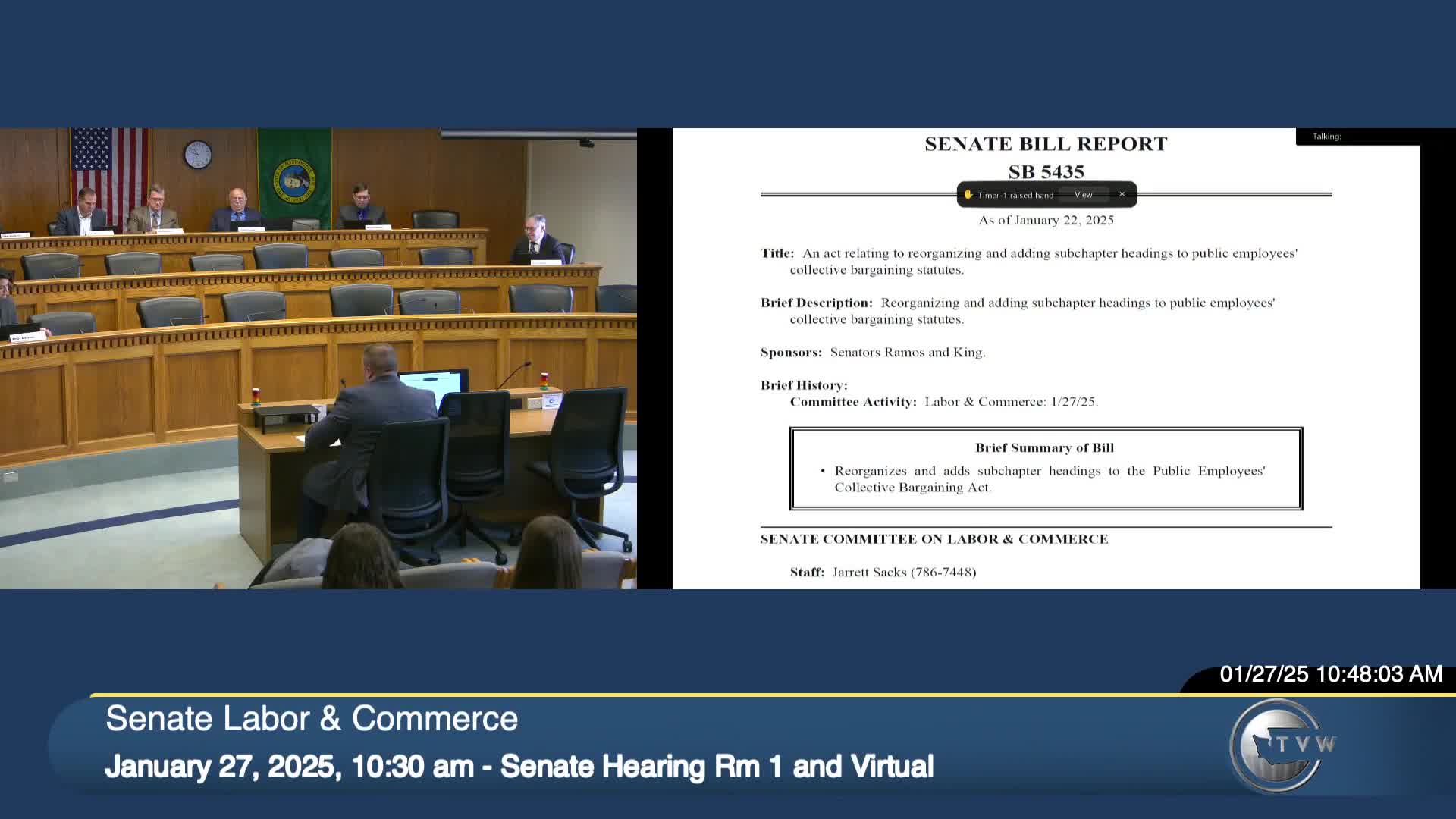
Committee hears bill to reorganize Public Employees Collective Bargaining Act
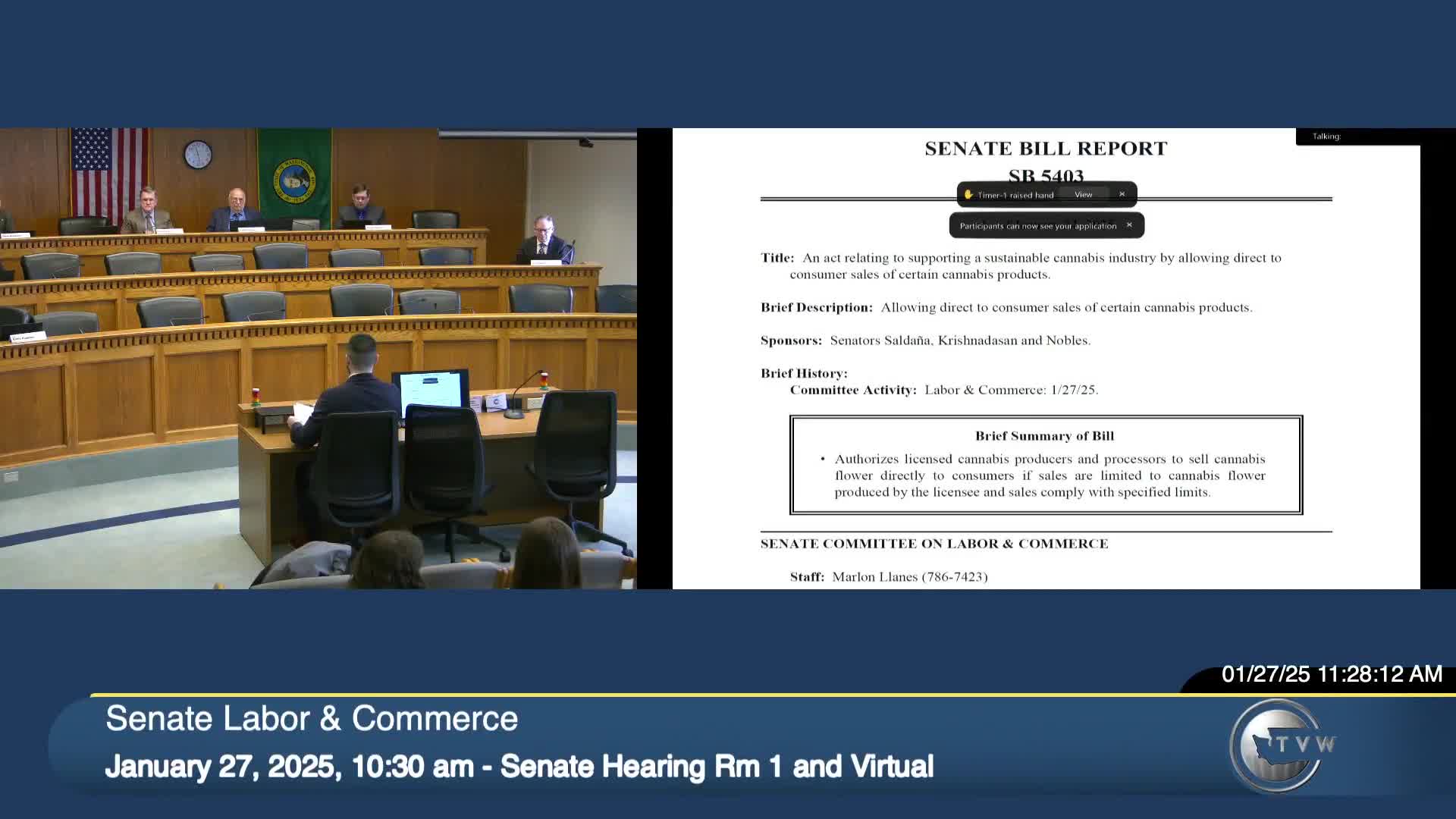
Debate on limited direct‑to‑consumer cannabis sales centers on market relief for growers and retail protections
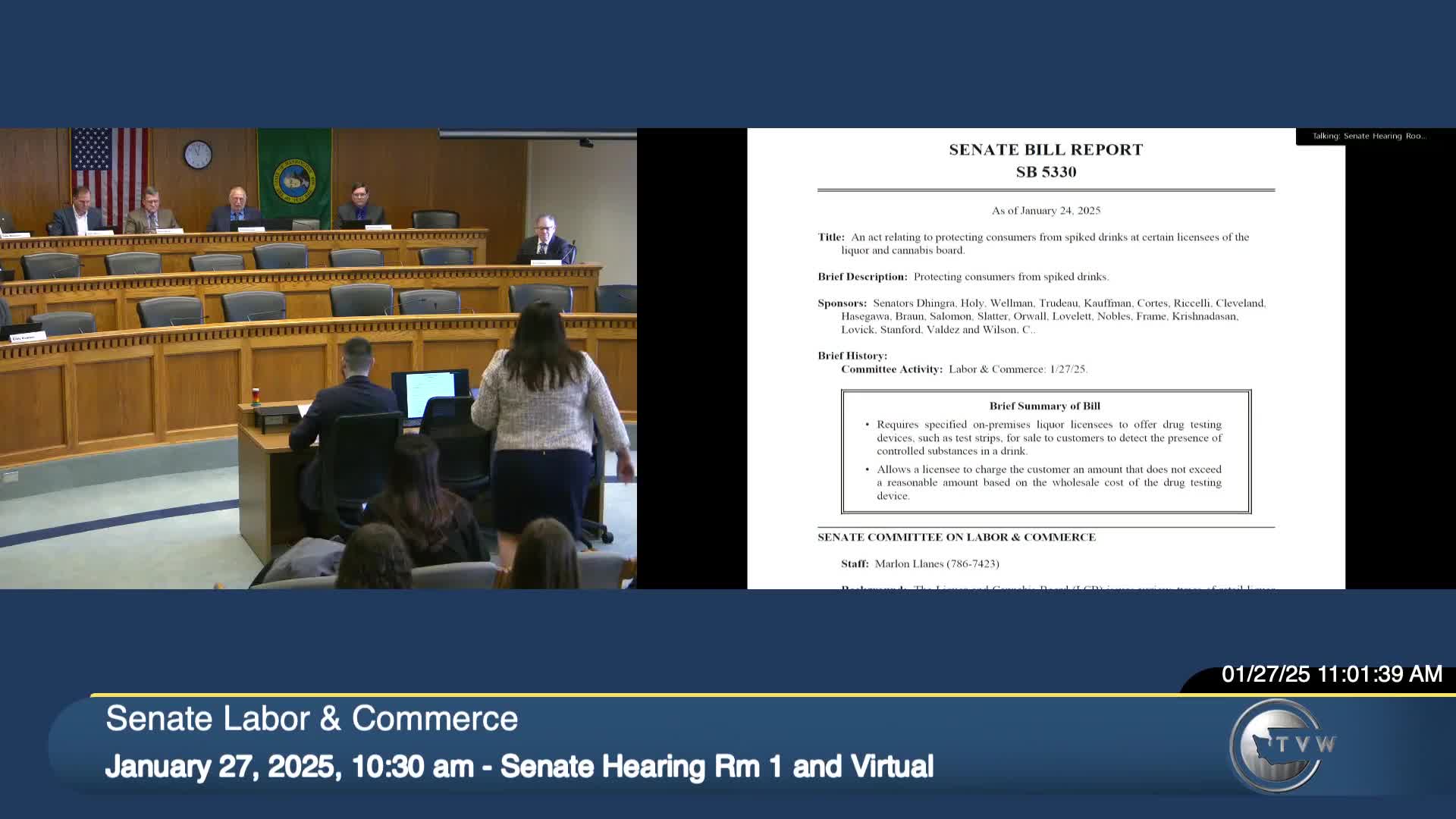
Students and advocates push bill requiring drink‑spiking test kits be sold at bars and nightclubs
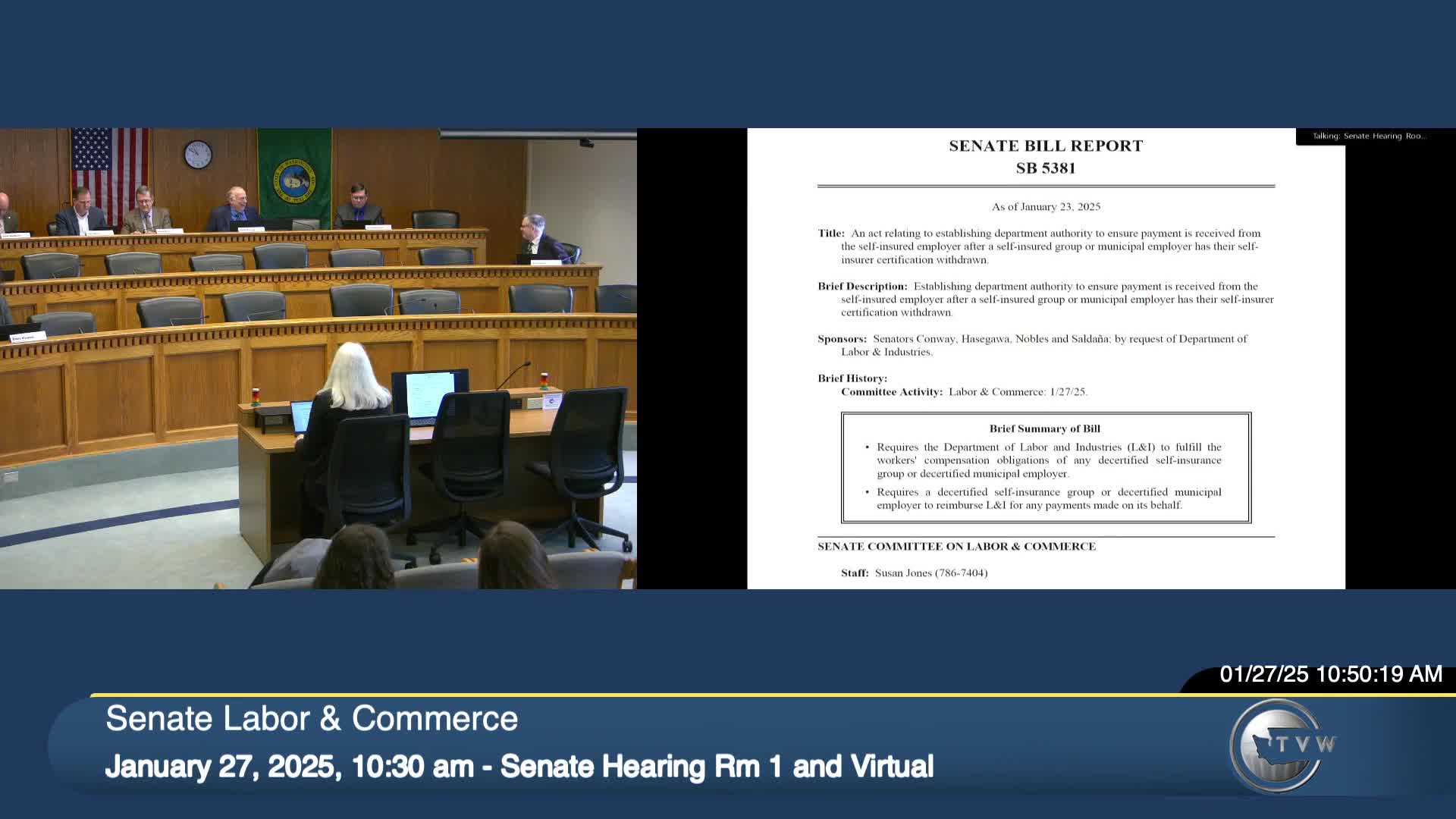
Committee hears bill to let L&I administer claims after self-insurer decertification
